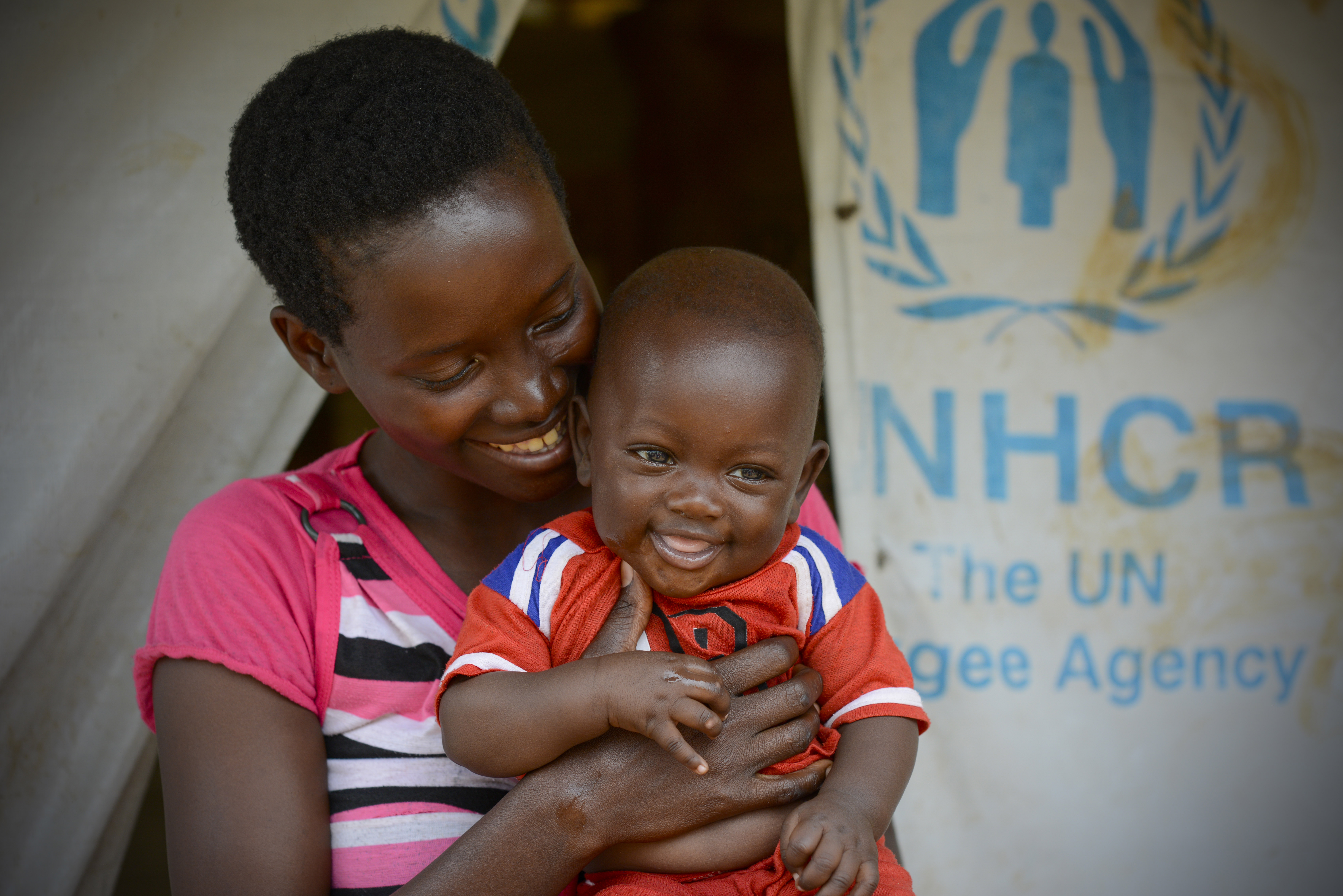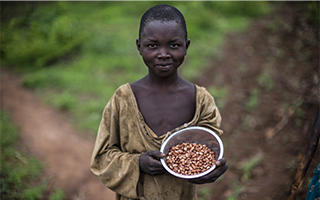South Sudan Emergency
Spiralling violence, conflict and a severe food shortage have endangered millions of lives in South Sudan.
Engulfed by a civil war, around 2.5 million people have fled South Sudan since December 2013, the country also faces life-threatening food shortages. According to UN agencies, 7 million people remain food insecure, the highest level of food insecurity the young nation has ever experienced.
The ongoing violence has exacerbated this humanitarian catastrophe and is fueling a refugee exodus into neighboring countries. Families have been torn apart, frightened children are on their own, and many are arriving to Ugandan refugee camps hungry, sick and traumatized by brutality or sexual assault.
UNHCR, the UN Refugee Agency, is on the ground providing support for those forced to flee and working to protect a growing number of internally displaced persons (IDPs) still trapped inside South Sudan. The deepening crisis had led to a critical funding shortage, with only 8 per cent of activities receiving vital international support.
South Sudan: A Children’s Crisis
South Sudanese refugees in the region (as of Dec. 2019)
%
of the South Sudanese refugee population are children (under the age of 18 years old
Number of internally displaced persons (IDPs) in South Sudan
How You Can Help
As ongoing conflict and insecurity makes it even more difficult for humanitarian organizations to provide protection for refugees, the support of international donors has never been more urgent or important. Even after many years of displacement, 70 per cent of South Sudanese refugees remain in emergency shelters.
Despite hardship and underfunding, refugees from South Sudan are finding shelter and welcome in neighbouring countries including Sudan, Uganda, and Kenya. Uganda has one of the world’s most progressive refugee policies, providing newcomers with plots of lands and the means to become independent, contributing members of their new communities.
UNHCR is funded by direct, voluntary contributions and our donors enable us to help refugees all over the world. Your support funds vital humanitarian work in South Sudan and the surrounding countries of asylum.
Whether providing food security, emergency aid, temporary shelter, or education, your donation helps refugees to live with autonomy, dignity, and hope. Help us to provide life-saving support in South Sudan.

“Refugees face two journeys, one leading to hope, the other to despair. It is up to us to help them along the right path.” – UN High Commissioner for Refugees Filippo Grandi
Send urgent relief to South Sudanese families in need
Too many South Sudanese are struggling to survive, with no end in sight to the crisis. Every day, their situation grows direr.
The South Sudan Emergency
Since South Sudan gained its independence in 2011, the development of the world’s youngest country has been burdened by conflict.
In 2013, a civil war coupled with severe famine lead to humanitarian crisis on an unimaginable scale. An uneasy peace treaty was negotiated in 2015, but today the situation remains volatile, with armed militias looting, burning down homes and murdering civilians.
“Humanity is suffering. This has to stop.”
– United Nations High Commissioner for Refugees Filippo Grandi
UNHCR in South Sudan
UNHCR, the UN Refugee Agency, leads international action to protect people forced to flee their homes due to conflict and persecution. UNHCR Canada plays a vital role supporting this work in South Sudan and worldwide.
“They came to my house and told me they would shoot me if I didn’t give them what we had. It took us four days to come to Uganda through the bush without food.” – Regina, South Sudanese Refugee, 58.
As of 2017 there are almost 2.5 million South Sudanese refugees, with no sign of numbers slowing.
On the ground, UNHCR aims to:
- Give out core relief items (CRIs) to 44 400 vulnerable internally displaced households.
- Enroll 80% of primary school-age refugee children in primary education.
- Provided essential health, sanitation, and educational services to those in need.
Sudan and Uganda are hosting the majority of South Sudanese refugees, and UNHCR is working with governments and local organizations in these countries to help refugees build a better future.
With Your Support, We Can Continue This Vital Work.
Child Refugees
Education also plays a vital role in restoring hope for the future. Missing Out: Refugee Education in Crisis, a report from the UN, found that refugee children are 5 times more likely to be out of school.
UNHCR is working with trusted partners to strengthen our support for children on the ground in South Sudan through the Regional Child Protection Network.
“Yes these are refugees, but they are children like any others around the world. Education is their only source of hope that they will be able to transform their lives and escape their situation here.”
%
of the forcibly displaced are women and children
million children have fled South Sudan
%
funding gap (as of Dec. 2019)
Internally Displaced People (IDPs) in South Sudan
Armed groups operating in Sudan are looting villages, restricting movement, and forcibly recruiting young men and boys.
Many civilians have been forced from their homes but are prevented from leaving the country by armed groups operating on the roads.
Help UNHCR to continue our lifesaving work with refugees and IDPs in South Sudan.
Gender Based Violence in South Sudan
Many refugees are survivors of violent attacks and sexual assault, and rape is increasingly being used as a weapon of war.
“They went home to home. They would rape any woman. They wanted us to fear staying there.” – Lilian, a refugee from South Sudan now living in Uganda.
Approximately 60 per cent of South Sudanese households are headed by women, and empowering female leadership is a crucial tool in the protection of women through community-based protection monitoring strategies.
Read more about the UNHCR’s plans to combat sexual and gender based violence (SGBV) in the South Sudan Regional Refugee Response Plan.
LEARN MORE
Latest South Sudan News
We give you exclusive access to breaking news and information from some of the most remote and hard-to-reach places on Earth.
Rohingya Crisis
Over 742,000 Rohingya refugees have been forced to escape violence in Myanmar by fleeing to Bangladesh – walking for days through jungles and mountains, or braving dangerous sea voyages.
Yemen Crisis
Yemen is currently the world’s worst humanitarian disaster. Worsening violence is resulting in widespread casualties and massive displacement.



